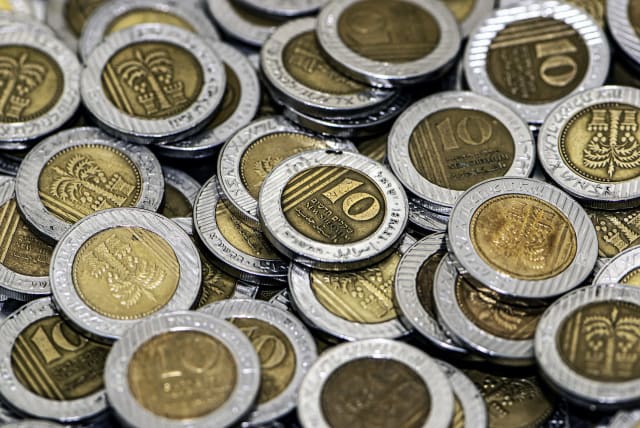Yom Kippur: Charity as a path to repentance - opinion

The obligation to give charity is based on both our need to take care of each other and a recognition that we are just the custodians of money.
There is no virtue in compulsory government charity, and there is no virtue in advocating it. A politician who portrays himself as ‘caring’ and ‘sensitive’ because he wants to expand the government’s charitable programs is merely saying that he’s willing to try to do good with other people’s money. – P. J. O’Rourke
If you are like me, your phone has been ringing off the hook for the last few weeks from all kinds of organizations soliciting donations for the holiday season. In addition, through my volunteer work helping families get out of debt, I can tell you that there are plenty of families who need help and have nothing whatsoever to eat for the holidays.
A central aspect to both the Rosh Hashanah and Yom Kippur prayers is that we say teshuva, tefila, and tzedakah – repentance, prayer, and charity – are the keys to ripping up the evil decree. I would like to focus on charity and try to provide a formula that will enable everyone to be able to give more tzedakah than they have in the past.
Tzedaka is often translated as charity. But in Hebrew, the root of the word comes from tzedek or righteousness.
Moshe Freedman writes that the Lubavitcher Rebbe explained it similarly. He explains: “Lastly, the word charity in Hebrew is hessed not tzedakah. Hessed implies that the recipient has no particular right to receive help and the giver is under no obligation to provide it. Tzedakah, however, means righteousness or justice. The implication is that the donor gives out of a sense of duty.”
I would also add that these three keys to ripping up the evil decree all help us focus on our fellow man and society as a whole, and not just about ourselves. Prayer and repentance are, as if you look carefully, you will find that the specific confessional prayers are all written in the plural. Meaning that we have a responsibility to look after each other and even pray for each other’s well-being and atonement.
The obligation to give charity is based on both our need to take care of each other and a recognition that we are just the custodians of money. In truth, all wealth belongs to the Lord; we are just looking after it.
So how can we have more money so that we can give more tzedakah?
To readers of this column, the answer is obvious. It centers on living within your means. The Mishna in tractate Rosh Hashanah says the whole world is judged on Rosh Hashanah, including how much money we will have in the upcoming year.
At the end of the laws of holidays, the Beiur Halacha commentary says that since we don’t know how much money we are allocated at the beginning of the year, it is incumbent on each individual to live within his or her means in order not to run out of money. We have a responsibility to not be frivolous with our money, since it comes to us by heavenly decree.
A consumer fast
Yom Kippur is a time of reflection and self-examination. Financially, start examining spending decisions and assess if you really need the product or whether you can do without.
Maybe it’s time that you institute a “financial fast.” You don’t need to buy everything. Every spending decision that is made can have a crucial effect on savings. Think about it this way: You can probably do without another new pair of shoes or shirt. There are a lot of families that you could give that money to instead, and it would allow them to be able to put food on the table for a week.
Prioritize expenses and buy only what is necessary. Too often I see people make all kinds of unnecessary purchases and they end up in debt. The goal is to increase your savings, not to increase your debt.
Examine all spending decisions. This is the case whether deciding to buy a new television set or whether to pay NIS 25 for a six-minute cab ride when you could walk instead. Get in the habit of asking if each purchase is truly necessary.
When shopping, make a list of what you actually need before you go to the supermarket to prevent yourself from overspending on great deals. Sticking to a specific shopping list prevents the purchase of superfluous, unnecessary luxuries.
I once counseled a family to set a goal of giving NIS 300 more each month to tzedakah. At first they thought it would be an impossible task, but after examining their spending and then prioritizing purchases by importance, they were able to easily find the cash and put it toward helping the needy.
New year
Use the new year to start fresh financially. Start a budget and prioritize tzedakah and savings. Try and put 10% of your take-home income in each. If you are in debt, use the budget to create fiscal order, get debt-free, and set up an emergency fund.
May we all merit a gmar hatima tova, a happy and healthy year, and may we make it a priority to live within our means so that we can increase our giving and create a better society.
The information contained in this article reflects the opinion of the author and not necessarily the opinion of Portfolio Resources Group, Inc. or its affiliates.
Aaron Katsman is the author of Retirement GPS: How to Navigate Your Way to A Secure Financial Future with Global Investing. www.gpsinvestor.com; aaron@lighthousecapital.co.il
Jerusalem Post Store
`; document.getElementById("linkPremium").innerHTML = cont; var divWithLink = document.getElementById("premium-link"); if (divWithLink !== null && divWithLink !== 'undefined') { divWithLink.style.border = "solid 1px #cb0f3e"; divWithLink.style.textAlign = "center"; divWithLink.style.marginBottom = "15px"; divWithLink.style.marginTop = "15px"; divWithLink.style.width = "100%"; divWithLink.style.backgroundColor = "#122952"; divWithLink.style.color = "#ffffff"; divWithLink.style.lineHeight = "1.5"; } } (function (v, i) { });


